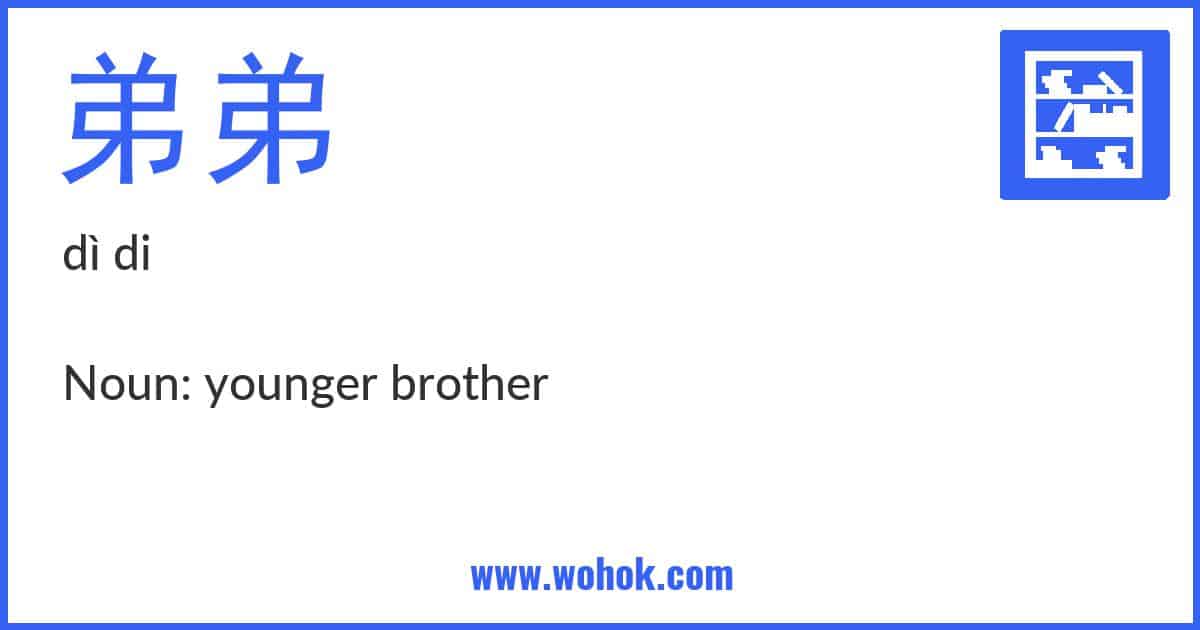The Chinese word 弟弟 is used to refer to a younger brother. It is commonly used within families and among close friends. In Chinese culture, the concept of family is highly valued, and addressing someone as 弟弟 shows a level of familiarity and affection. The term can also be used as a form of address for a younger male acquaintance, even if they are not related.
Translation
Noun: younger brother
Pronunciation
Example Sentences
| Chinese | Pinyin | Engish |
|---|---|---|
| 我的弟弟很聪明 | wǒ de dìdì hěn cōngmíng | My younger brother is very smart |
| 弟弟喜欢打篮球 | dìdì xǐhuan dǎ lánqiú | My younger brother likes to play basketball |
| 我的弟弟今年八岁了 | wǒ de dìdì jīnnián bā suì le | My younger brother is eight years old this year |
| 弟弟的中文比我好 | dìdì de zhōngwén bǐ wǒ hǎo | My younger brother’s Chinese is better than mine |
| 我的弟弟很懒,不爱做家务 | wǒ de dìdì hěn lǎn, bù ài zuò jiāwù | My younger brother is lazy and doesn’t like to do housework |
| 弟弟喜欢看动画片 | dìdì xǐhuan kàn dònghuà piàn | My younger brother likes to watch cartoons |
| 我的弟弟很喜欢狗 | wǒ de dìdì hěn xǐhuan gǒu | My younger brother really likes dogs |
| 弟弟的生日是明天 | dìdì de shēngrì shì míngtiān | My younger brother’s birthday is tomorrow |
HSK
弟弟 is part of HSK Level 2 in HSK 2.0. In the newer HSK 3.0 it is part of HSK Level 1.
Learning Card


